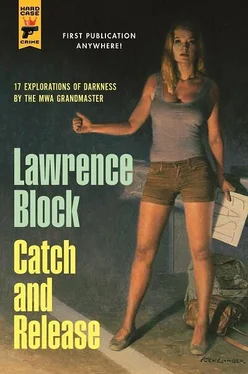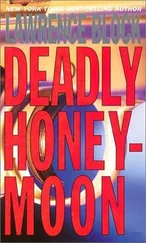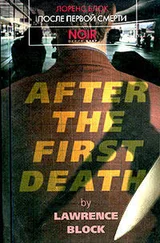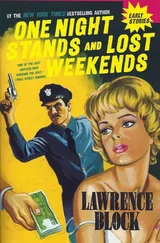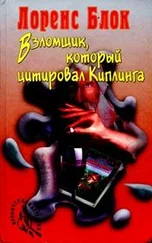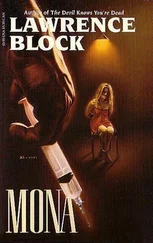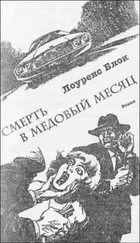An hour with the weights left him with sore muscles, but ten minutes in the steam room and a cold shower set him right again, and he always felt good on the way home. And then, on Fridays, he got to play golf.
And that was always a pleasure. Until Bellerman, that interfering son of a bitch, came along and ruined the whole thing for him.
The driving range was at Chelsea Piers, and it was a remarkable facility. Kramer had made arrangements to keep a set of clubs there, and he picked them up along with his usual bucket of balls and headed for the tee. When he got there he put on a pair of golf shoes, arguably an unnecessary refinement on the range’s mats, but he felt they grounded his stance. And, like the thin leather gloves he kept in the bag, they put him more in the mood, as did the billed Tam O’Shanter cap he’d put on his head before leaving the house.
He teed up a ball, took his Big Bertha driver from the bag, settled himself, and took a swing. He met the ball solidly, but perhaps he’d dropped his shoulder, or perhaps he’d let his hands get out in front; in any event, he sliced the shot. It wasn’t awful, it had some distance on it and wouldn’t have wound up all that deep in the rough, but he could do better. And did so on the next shot, again meeting the ball solidly and sending it out there straight as a die.
He hit a dozen balls with Big Bertha, then returned her to the bag and got out his spoon. He liked the 3-wood, liked the balance of it, and he had to remind himself to stop after a dozen balls or he might have run all the way through the bucket with that club. It was, he’d found, a very satisfying club to hit.
Which was by no means the case with the 2-iron. It wasn’t quite as difficult as the longest iron in his bag — there was a joke he’d heard, the punchline of which explained that not even God could hit the 1-iron — but it was difficult enough, and today his dozen attempts with the club yielded his usual share of hooks and slices and topped rollers. But among them he hit the ball solidly twice, resulting in shots that leapt from the tee, scoring high for distance and accuracy.
And therein lay the joy of the sport. One good shot invariably erased the memory of all the bad shots that preceded it, and even took the sting out of the bad shots yet to come.
Today was an even-irons day, so in turn he hit the 4-iron, the 6-iron, and the 8-iron. When he’d finished with the niblick (he liked the old names, called the 2-wood a brassie and the 3-wood a spoon, called the 5-iron a mashie, the 8 a niblick) he had four balls left of the 75 he’d started with. That suggested that he’d miscounted, which was certainly possible, but it was just as likely that they’d given him 76 instead of 75, since they gave you what the bucket held instead of delegating some minion to count them. He hit the four balls with his wedge, not the most exciting club to hit off a practice tee, but you had to play the whole game, and the short game was vital. (He had a sand wedge in his bag, but until they added a sand pit to the tee, there was no way he could practice with it. So be it, he’d decided; life was compromise.)
He left the tee and went to the putting green, where he put in his usual half-hour. His putter was an antique, an old wooden-shafted affair with some real collector value, his choice on even-iron Fridays. It seemed to him that his stroke was firmer and more accurate with the putter from his matched set, his odd-iron choice, but he just liked the feel of the old club, and something in him responded to the notion of using a putter that could have been used a century ago at St. Andrew’s. He didn’t think it had, but it could have been, and that seemed to mean something to him.
His putting was erratic, it generally was, but he sank a couple of long ones, and ended the half-hour with a seven-footer that lipped the cup, poised on the brink, and at last had the decency to drop. Perfect! He went to the desk for his second bucket of balls, and returned to the tee and his Big Bertha.
He’d worked his way down to the 6-iron when a voice said, “By God, you’re good. Kramer, I had no idea.”
He turned and recognized Bellerman. A co-worker at Taggart & Leeds, until some competing firm had made him a better offer. But now, it turned out, Bellerman was retired himself, and improving the idle hour at the driving range.
“And you’re serious,” Bellerman went on. “I’ve been watching you. Most guys come out here and all they do is practice with the driver. Which they then get to use one time only on the long holes and not at all on the par threes. But you work your way through the bag, don’t you?”
Kramer found himself explaining about even- and odd-iron days.
“Remarkable. And you hit your share of good shots, I have to say that. Get some good distance with the long clubs, too. What’s your handicap?”
“I don’t have one.”
Bellerman’s eyes widened. “Jesus, you’re a scratch golfer? Now I’m more impressed than ever.”
“No,” Kramer said. “I’m sure I would have a handicap, but I don’t know what it would be. See, I don’t actually play.”
“What do you mean, you don’t play?”
“I just come here,” Kramer said. “Once a week.”
“Even-numbered irons one week, odd ones the next.”
“That’s right.”
“Every Friday.”
“Yes.”
“You’re kidding me,” Bellerman said. “Right?”
“No, I—”
“You practice more diligently than anybody I’ve ever seen. You even hit the fucking 1-iron every other Friday, and that’s more than God does. You work on your short game, you use the wedge off the tee, and for what? So that you won’t lose your edge for the following Friday? Kramer, when was the last time you actually got out on a course and played a real round of golf?”
“You have to understand my routine,” Kramer said. “Golf is just one of my interests. Mondays I go to the gym and put in an hour on the treadmill. Tuesdays I go to the batting cage and work my way up to fastballs. Wednesdays...” He made his way through his week, trying not to be thrown off stride by the expression of incredulity on Bellerman’s face.
“That’s quite a system,” Bellerman said. “And it sounds fine for the first four days, but golf... Man, you’re practicing when you could be playing! Golf’s an amazing game, Kramer, and there’s more to it than swinging the club. You’re out in the fresh air—”
“The air’s good here.”
“—feeling the sun on your skin and the wind in your hair. You’re on a golf course, the kind of place that gives you an idea of what God would have done if he’d had the money. And every shot presents you with a different kind of challenge. You’re not just trying to hit the ball straight and far. You’re dealing with obstacles, you’re pitting your ability against a particular aspect of terrain and course conditions. I asked you something earlier, and you never answered. When’s the last time you played a round?”
“Well, as a matter of fact—”
“You never did, did you?”
“No, but—”
“Tomorrow morning,” Bellerman said. “You’ll be my guest, at my club on the Island. I’ve got tee time booked at 7:35. I’ll pick you up at 6, that’ll give us plenty of time.”
“I can’t.”
“You’re retired, for Chrissake. And tomorrow’s Saturday, it won’t keep you from your weekday schedule. You really can’t? All right, then a week from tomorrow. Six o’clock sharp.”
He spent the week trying not to think about it, and then, when that didn’t work, trying to think of a way out. He didn’t hear from Bellerman, and found himself hoping the man would have forgotten the whole thing.
His routine worked, and he saw no reason to depart from it. Maybe he wasn’t playing “real” golf, maybe he was missing something by not getting out on an actual golf course, but he got more than enough pleasure out of the game the way he played it. There were no water hazards, there were no balls lost in deep rough, and there was no score to keep. He got the exercise — he took more swings at the driving range than anyone would take in eighteen holes on a golf course — and he got the occasional satisfaction of a perfect shot, without the crushing dismay that could attend a horrible shot.
Читать дальше
